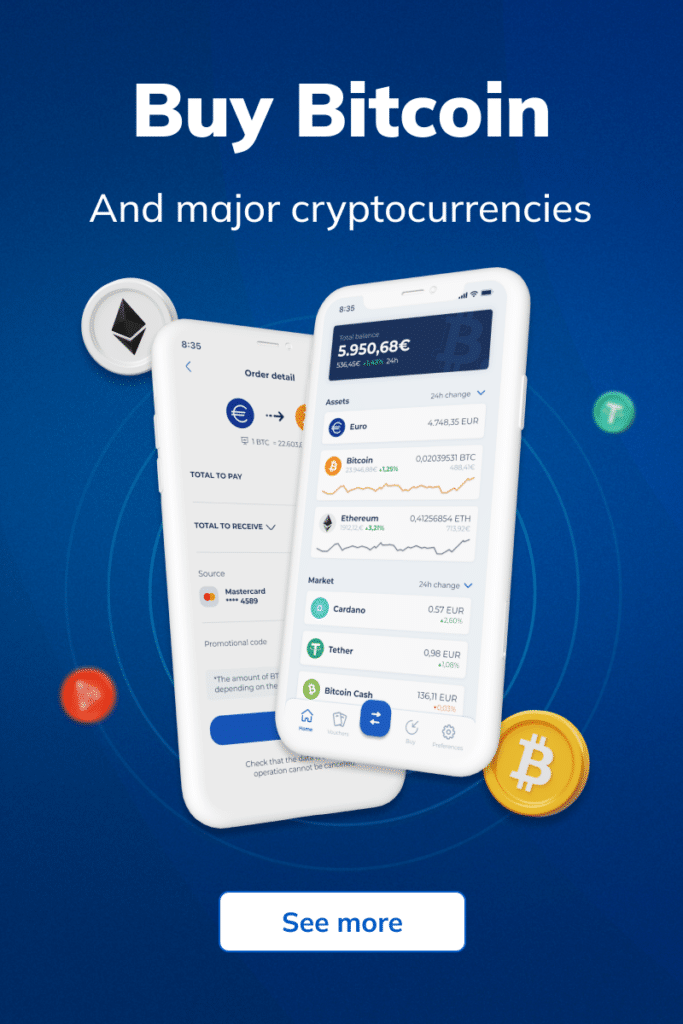
Table of Contents
ToggleWhen we talk about transactions that take place on the blockchain of some cryptocurrency, we also usually hear about network commissions.
If you are still not sure what network commissions are and what they are for, read on.
What are the most common types of transaction fees?
Before explaining what network fees are, it is important to know that they are not the only type of fees applied to transactions.
Below I will show you the 3 types of transaction fees that exist in the crypto-universe so you can learn how to differentiate between them:
- Exchange fees
This is a commission that is generated and applied when placing a buy or sell order on an exchange. Some exchanges have fixed rates, while there are others where the rates may vary.
- Wallet fees
Some of the wallets we use to store our cryptocurrencies apply fees or charges to the users who use them.
These fees are typically applied to cover transaction development and administration costs in exchange for keeping crypto-assets protected and safe from any potential damage or theft.
This is similar to the fees that banks charge their users for keeping their money in an account.
Obviously, not all wallets apply these fees.
- Network or mining fee
Finally, there is a third type of fees called ‘network commissions’ or mining fees.
A network fee involves a charge to cover the expenses of the mining network running on a blockchain.
But how do they work? Below I will explain in detail what these types of commissions are and what they are for.
What are network commissions?

If you have already read a post about the cryptocurrency mining process, such as Bitcoin mining, you will have seen that, during this process, when a cryptocurrency transaction is processed on the network, it is recorded in a single, agreed and distributed record to be considered successfully completed or valid.
The work of validating transactions and adding them to the blockchain is done by miners, and while you may be imagining men with a shovel and a miner’s helmet, we’re actually talking about powerful computers that connect to a blockchain network.
Miners spend large amounts of computing power and energy in order to obtain a reward. In fact by adding each block to a blockchain miners receive a block reward.
These rewards are the transaction fees you pay for moving funds on a certain blockchain and are essential to ensure the functioning of blockchains and their security.
What determines the cost of a transaction?
Network commissions are nothing more or less than an incentive offered to miners to perform their work. The higher the commission paid, the more incentive the miner will have to validate that transaction.
These commissions do not depend on the amount you are sending but depend on the following conditions:
- Network conditions:
We refer to the saturation level of the network, i.e. how many transactions there are to validate. In the case of Bitcoin, for example, there is a limited number of transactions that can be included in a block (it can only contain up to 1 MB of information). When a large number of users are sending funds, there can be network congestion due to the large number of transactions waiting for confirmation.
When you are sending funds from your wallet, the transaction first enters a mempool before being included in a block. From this mempool the miners choose which transactions to include, prioritizing those with higher fees.
- Transaction size
When we talk about the size of the data in a transaction, we mean how many inputs and outputs make up this transaction and how much space they take up at the computational level. Since a block on the bitcoin blockchain cannot contain more than 1 MB of information, smaller transactions are easier to validate.
On the other hand, larger transactions require more work and take up more space in the block. For this reason, a larger transaction will require a higher commission.
How much are the Bitcoin network fees?
The average fees charged for a Bitcoin transaction can vary during periods of network congestion, as happened in December 2017, where they reached almost 60 USD. You can find out the average cost of a transaction at a given time, on the Bitcoinfees platform.
Which crypto has the lowest transaction fees?
Today there are thousands of cryptocurrencies and some of them have very high network fees but there are also some that have very low network fees. Here is a list of some of the cryptocurrencies that offer the lowest network fees at the moment.
- TRON:
TRON has an average transaction fee of around $0.0568677, which ensures that it is easier to transfer between parties. One of the reasons TRON has a minimal fee is that it is a crypto that cannot be mined.
- Ripple (XRP):
Ripple’s transaction fee is also one of the lowest with an average of around 0.00128122 XRP.
- Dash:
The average commission for dash is around $0.0011. Today it is one of the lowest in the cryptocurrency market.
- Bitcoin Cash:
The Bitcoin Cash commission value comes to $0.0035 and is also one of the lowest among cryptos on the market.
- Litecoin:
Litecoin is a much easier cryptocurrency to mine than bitcoin and is currently priced at $226.88 with a transaction fee of $0.0443.
Where can you find updated cryptocurrency commissions?
If you want to know the updated prices of the rates, you can use the following platforms:
Swapzone: if you want to know the cost of exchange commissions, Swapzone is the most famous platform to offer an updated list of the exchanges with the best commissions.
Cryptofeesaver is another platform that compares exchanges according to the cheapest commissions they offer.
If you want to know the best network commissions for your transactions, I advise you to use one of these platforms:
Blockchair is a blockchain search engine for Bitcoin and other cryptocurrencies and can filter and sort blocks, transactions, fees according to a variety of different criteria.
Bitcoinfees is a platform that helps determine what commission to choose to make a transaction over a given period of time. It is a recommended fee based on recent past performance.
Crypto Fees is a platform that shows which cryptocurrency offers the best transaction fees by analyzing the latest transactions on the Bitcoin, Bitcoin Cash, Litecoin and Ethereum blockchains.
EthGasStation is a platform that provides us with information on estimating the best Ethereum gas fees.




